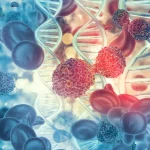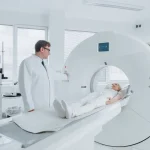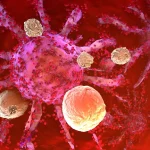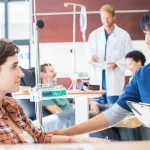Nausea and vomiting
Nausea and vomiting are often temporary and do not affect everyone receiving treatment for cancer.
- Nausea: subjective feeling of being about to vomit.
- Vomiting: sudden expulsion by the mouth of the stomach contents with or without heaving.
Here are some tips that can help those affected.
Helpful hints
- Take anti-nausea medication as prescribed by the doctor at the onset of nausea.
- Take anti-nausea medication 20 to 30 minutes before meals.
- Drink clear fluids such as water, sports drinks, broth and ginger ale.
- Eat five or six small light meals or snacks per day. Choose times when nausea is less pronounced, even at night. Eat in a relaxed atmosphere and take time to rest afterwards. Lying down is not recommended; a sitting or half-sitting position is best (place two or three pillows under your head, as needed).
- Eat mostly cold or lukewarm food.
- Avoid strong odors.
- Avoid fried, spicy, fatty or very salty dishes.
- Choose foods that are pleasant to the taste or make you feel less nauseous.
- Do not force yourself to eat if you feel nauseous.
- Use relaxation or meditation techniques.
Helpful hints: vomiting
- Limit intake of food and drink when vomiting occurs, and until it stops.
- From 30 to 60 minutes after vomiting, gradually consume clear liquids. If clear liquids are tolerated, try eating dry foods like crackers, toast, dry cereal and pretzels. If these are tolerated, add foods rich in protein, such as eggs or chicken.
Severe vomiting can cause dehydration and greatly weaken a person. It is advisable to contact the oncology team when the following situations arise:
- Five or more vomiting episodes per day;
- No food for 24 hours
- Inability to ingest liquid without vomiting;
- Signs of dehydration include dizziness, dry mouth, skin folds, thirst, decreased urination, more concentrated urine, and increased heart rate;
- Blood in vomit;
- Severe associated abdominal pain;
- Inability to perform everyday activities.































